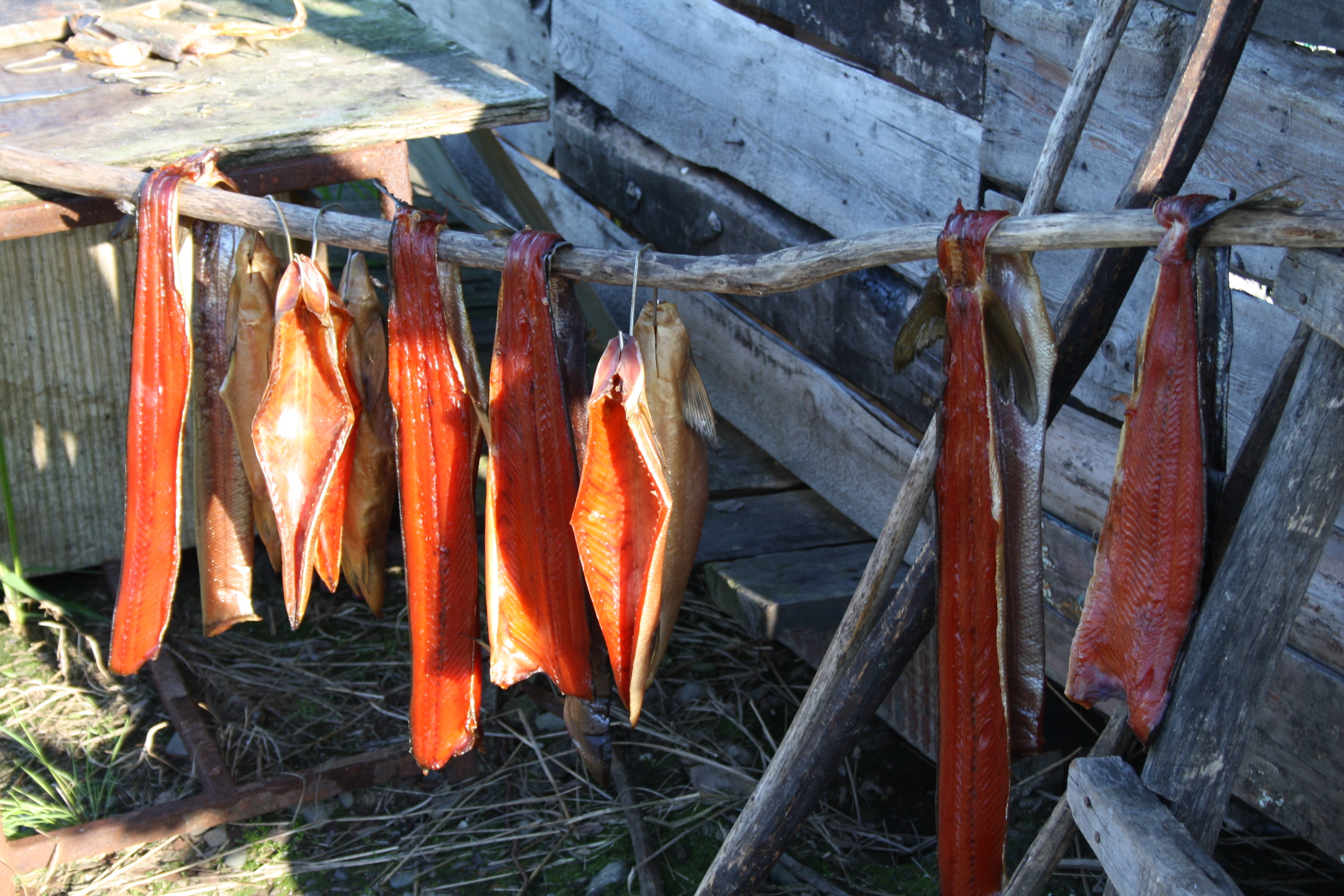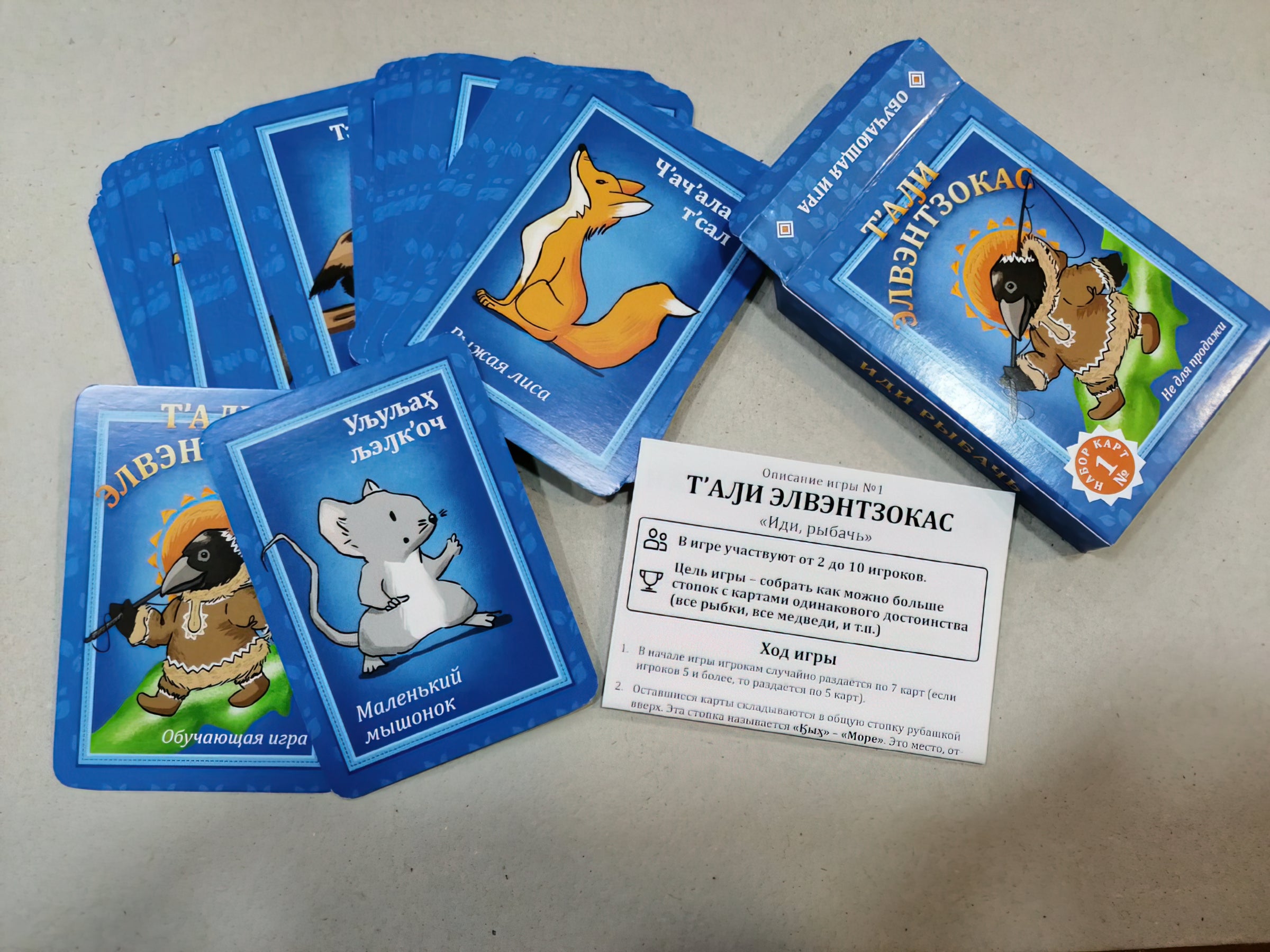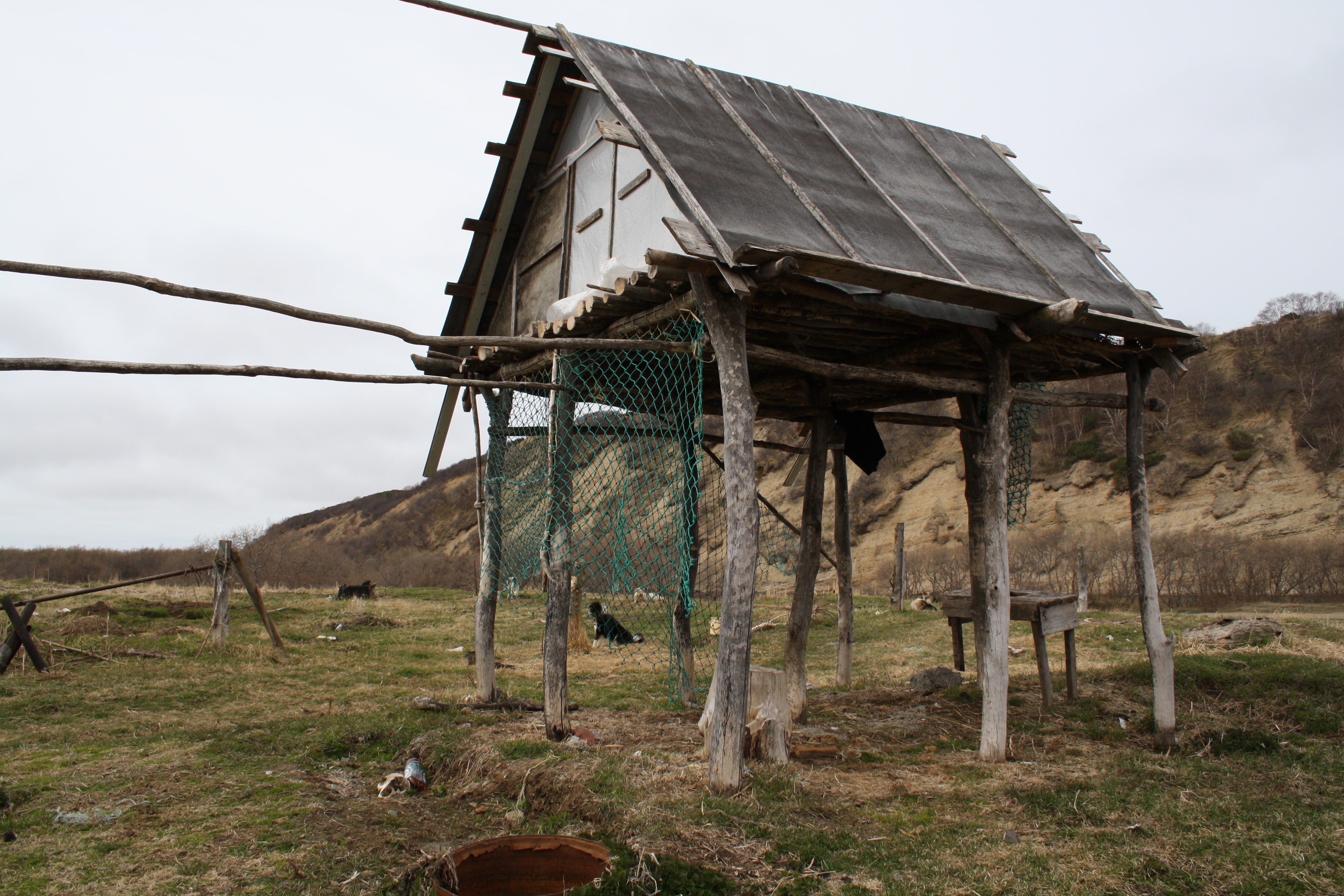
This is a story about an ancient language that resides on the Kamchatka peninsula on the Pacific coast of Russia. Itǝnmǝn (“the one who exists”), known today as Itelmen, is a language of the salmon people who were born from Mitti, a wise wife of Kutkh, the Great Raven Creator. Our land was created out of the King Salmon by Khutkh the Raven, who infused his fire spirit into its mountains and life into its rivers and taught people to hunt and fish. Itelmens have survived Christianization, Sovietization, collectivization, relocation, repression, and diseases. More than 250 years ago, the first explorers of Kamchatka were indicating that the Itelmen language would soon be extinct. We are still here.
Linguistically, Itelmen belongs to the Chukchi-Kamchatkan language group and is considered a language isolate. Itelmen is famous for being a language of consonants, yet it is rather melodic and is beautifully represented in our songs and dances. Various members of our community and beyond have done tremendous work keeping our severely endangered language alive. Although it currently has less than a handful of speakers, thanks to them we have dictionaries, textbooks, Itelmen lessons in schools, and language lessons for adults. While many criticize such formal approaches to language learning, in language revitalization we need to use all resources possible to keep the language alive so that younger generations have a starting point to develop and achieve more.

Community Efforts and Language Revitalization Spaces
Indigenous languages in Russia fall under the auspices of the Ministry of Education, which means language revitalization is closely tied to, and in many instances limited by, formal educational establishments, federal educational standards, and class work. Amazing success stories of Yuchi, Muskoki, Maori, Hawaiian, and other Indigenous languages indicate that we have a long way to go in our part of the world in developing a meaningful language revitalization agenda and planning that actually works. Still, we stay enthusiastic about the well being of Itelmen.
Community action is visible and is bearing fruitful results. Through utilizing diverse venues and spaces, language learners enhance their language skills, raise the prestige of the language, and invite more interest to learn the language. Three formal venues are used to achieve these goals: the Kovran School, Kovran House of Culture, and Kamchatka Regional Scientific Library. These venues address different audiences and age groups and collectively work on advancing the state of the language by applying different methodologies. The School of Kovran Village is the only school that offers language lessons, and Itelmen children show much curiosity to learn Itelmen in the classroom. This classroom is unique in the way that it lives and breathes Itelmen worldviews, since it is located in the only remaining village where Itelmens are a majority.
The Village of Kovran is also home to the Kovran House of Culture, which is a State institution that functions as the community house where diverse community events are organized. It is also home to the Itelmen dance group Elvel. Itelmens love to perform, and song and dance play a major role in helping the younger generations be proud of who they are. Dancing teaches us not to be shy about our identity, but to be vocal about who we are and where we came from. The Itelmen language is very much alive during singing and dancing at ceremonies, festivals, and celebrations. In recent years, the Kamchatka Regional Scientific Library, located in the capital city of Petropavlovsk-Kamchatsky, has become a home to the group of adult learners who meet regularly to learn Itelmen through both formal and informal settings and activities. They are current advocates for language who actively promote language learning among the urban population.
Language revitalization requires community interests and will, investment of finances, time, knowledge, and educational resources. There are currently not enough resources to start such highly effective programs as language immersion and Master-Apprentice language programs. But, Itelmens are utilizing the resources and institutions that are available to benefit the language through merging the interests of the State of Russia, which actively supports maintaining the cultural diversity of the country, and interests of the community, who are trying their best to keep language and culture alive.

Language Resource Innovation
Тʼаԓи Элвэнтзокас—“Go Fish” card game in Itelmen
This game was developed based on the widely known card game “Go Fish,” which my children enjoyed playing to learn English. We adapted this game to introduce Itelmen terminology in relation to Kamchatka flora and fauna. The cards not only provide individual names for animal and plant words, but these words are also introduced with the descriptives. For example: уљуљаӽ љэԓк’оч (small mouse), пǝӈлаӽ йуӈйучӽ (gray whale), моӄрэ мэт’ск’ай (furry bear), etc. Cards include illustrations and terminology both in Itelmen and Russian. The introduction card provides instructions on how to play this game solely in Itelmen through outlining basic commands in the language such as мԓэсчэн (my turn), анǝњчхча’ԓч (you won), хэтус анǝњчхча’ԓном (hurray, I won), etc. This game was developed with the hope that language learners will practice their language in informal settings such as sitting by the fire and playing cards.
Cultural mapping
Our language cannot be separated from Kamchatka land and rivers, the Pacific Ocean, the Sea of Okhotsk, and Indigenous wisdom. All are tightly interdependent and have long-time relations. Therefore, when we speak about language revitalization, we refer to traditional lands and waters. One of our long term projects is to create traditional cultural maps in the Itelmen language. Many Itelmen place names all over Kamchatka have been recorded by knowledge holders and researchers,yet we don’t have enough stories from and about those places in the language. This is not a new idea in the global arena, but it is quite new and innovative to Itelmens. Mapping of cultural places in the language is a topic that the community has been discussing for some time. While now we have only bits and pieces of information, there is an intention to compile a comprehensive story of our land in the near future.
Puppet Theater
Puppet theater has been successful in bringing back our stories in our language. With the goal to support language development, we had special puppets made that are representative of our traditional stories. Some stories are told only in Itelmen, and some are a mix of Itelmen and Russian. We introduced this form as a stage performance for the villagers, both adults and children, in consultation with the Elders and knowledge holders. These have shown to be effective in supporting interest in the language. First, the actors have to learn the script in the language, then the villagers are invited to watch and understand what the story is about. Usually we choose famous stories that everyone knows so the audience can understand most of the story if it is solely in Itelmen. This idea has gone beyond the puppet theater into the classroom, where children have started making paper dolls to stage their own stories.

Looking Ahead
These innovations show the bright side of the life of the Itelmen language, yet there is a long way to go towards language stabilization. These are just complementary educational materials that could best fit with a much needed Master-Apprentice language program. While the community is taking their own action to keep the language, they are caught in the widely spread myths about language learning that are centered around the need of a book, a classroom, a trained teacher, or a writing system. We are still going through the process of understanding and bringing back the traditional forms of education that have been working effectively for many centuries within our families, relatives, lands, and waters. For the UN Decade of Indigenous languages, I want to remain hopeful that this is not the last decade that Itelmens will have native language speakers. I want to believe that this decade will become known as the time when the Itelmen language reversed its decline and began to flourish.
— Tatiana Degai (Itelmen) is a scholar from the Kamchatka peninsula on the Pacific coast of Russia, and is a Professor at the University of Victoria, and an Affiliate Assistant Professor of Arctic Indigenous Studies at the ARCTICenter, University of Northern Iowa. She maintains a strong connection with the Council of Itelmens of Kamchatka “Tkhsanom,” working on language and culture revitalization and community well being.
Top photo: Ivan Bey works in the House of Culture with puppet characters like Kutkh the Raven and his wife Mitti. Photo by House of Culture in Kovran.
All other photos by Tatiana Degai.
